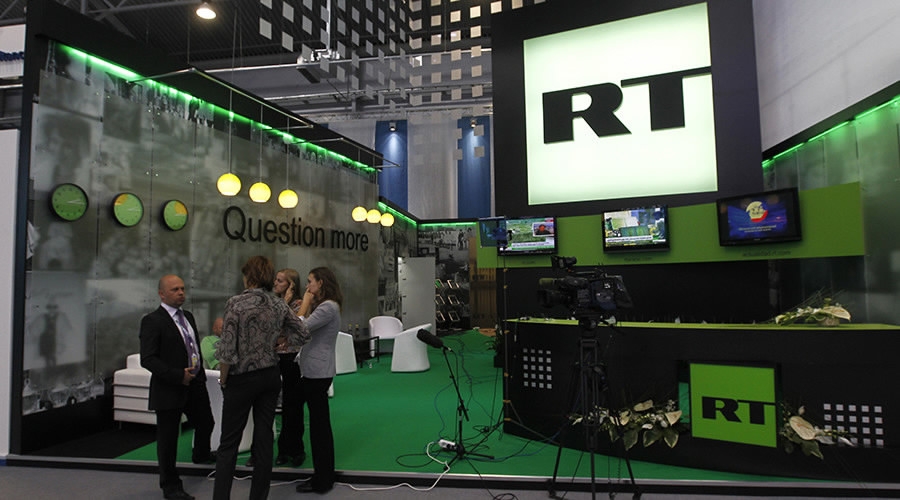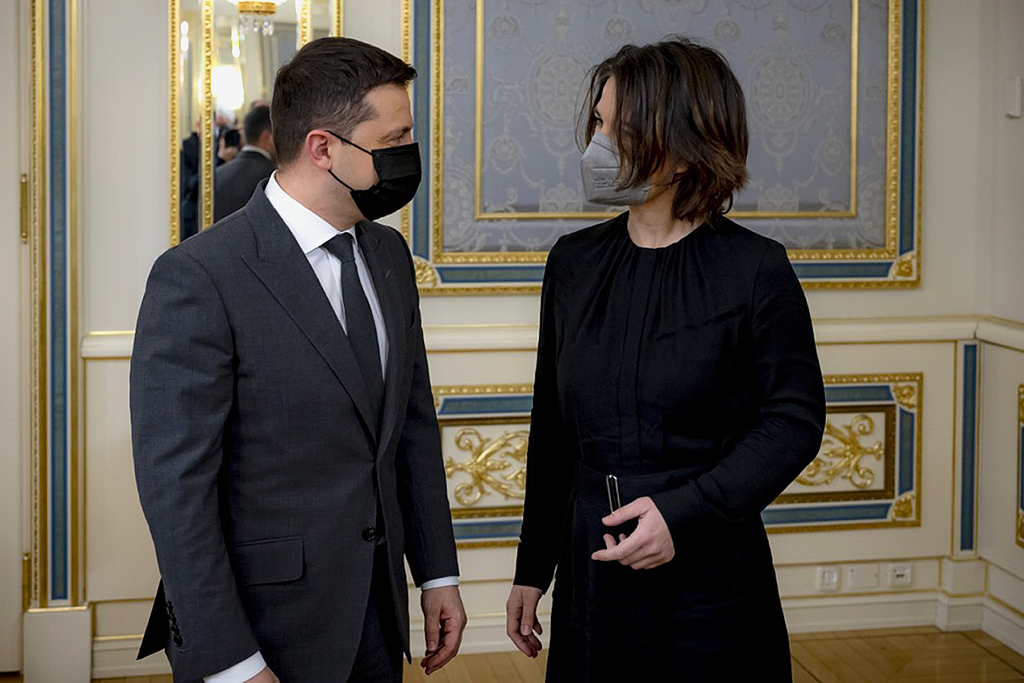
Editor's note: Stephen Ndegwa is a Nairobi-based communications expert, lecturer-scholar at the United States International University-Africa, author and international affairs columnist. The article reflects the author's opinions and not necessarily the views of CGTN.
Freedom of expression is one of the foundations upon which Western society has been built and is sustained. Basically, this tenet is based on the premise that everyone is entitled to their own opinion, even when others may be in disagreement with a person's views.
It was therefore shocking for Germany, certainly Europe's largest economy and the European Union's (EU) most influential country, to renege on this principle based on political expediency. On February 2, the world woke up to the news that Germany's broadcasting regulator had banned RT, the Russian state-controlled international television network.
In a statement released on Wednesday, Germany's authorization and oversight commission attributed the ban on RT DE to lack of the "requisite broadcasting license." Although RT did not have a direct license to broadcast in Germany, the latter still allowed the signal to filter from Serbia where RT has a license for cable and satellite transmission.
Well, Russia has since made good on its threat to retaliate by proscribing Germany's state broadcaster DW broadcast and digital channels. It did not need to come to that, but the point had to be made that what is good for the goose is equally appropriate for the gander. Sadly, it is a game with no winners as the respective audiences lose from the curtailment of different worldviews.
For Germany to stoop so low as to use such a lame excuse means that it is losing confidence in its beliefs. With the threat of military action losing its edge as other countries acquire sophisticated weapons technology, ideological wars have now become an alternative warfront.
Germany's action against Russia comes from the same script that the U.S. used to harass Chinese media in June 2020 when then President Donald Trump's administration designated four Chinese media outlets as foreign missions. Among other things, Chinese Foreign Ministry Spokesperson Zhao Lijian asked the U.S. to discard its "ideological bias."
Now, freedom of expression, also known as freedom of speech, presupposes that we have free spirits. Ironically, it is the Western world of which Germany is part of that made it a universal concept, even slapping sanctions to fledgling democracies for not giving the press sufficient freedom.
Denying Germans alternative views expressed by RT DE means that Germany feels insecure that the lies propagated by the West against Russia and other adversaries in general will be exposed. This includes stereotypes that Western media have perpetuated for decades in order to justify to their people the subjugation of other societies.

German Foreign Minister Annalena Baerbock (R) holds talks with Ukrainian President Volodymyr Zelenskyy during her visit to Ukraine, January 17, 2022. /CFP
German Foreign Minister Annalena Baerbock (R) holds talks with Ukrainian President Volodymyr Zelenskyy during her visit to Ukraine, January 17, 2022. /CFP
In the current tension on the Russia-Ukraine border, for instance, Western media is pushing its misinformation through the usual one-sided narratives, denying its audiences facts that can sway their opinion to Russia's rightful claims.
By banning RT DE, Germany insinuates that the Russian broadcaster is airing content that can incite racism or violence. It is a legacy of the media's role during Nazi Germany when it was used to create hatred against Jewish people through anti-Semitic messaging. The programs initiated by the Führer Adolf Hitler left an estimated six million Jewish people dead. The ban also repeats history of the era when Germany's media was unilaterally censored by the Allied occupying forces after World War II.
Indeed, Germany has one of the most regulated media in the Western world aimed at ensuring adherence to ethics, among other checks and balances, to guard against excesses and nip them in the bud when they start to grow. There are 14 media authorities and four central commissions exercising control of the country's dual broadcasting system which comprises public service broadcasting and private media.
Germany's action against RT DE has exposed its ideological underbelly, even as it previously appeared to be level-headed compared to its main ally, the U.S. As late as this week before the media ignominy, the country rated high in the eyes of international affairs experts for its hands-off stance in the Russia-Ukraine conflict. But the pressure is real. In order to please the U.S., however, it had to do something anomalous to its character to prove its tacit support.
Still, another angle has it that the action was aimed as a distraction from the fact that Russian President Vladimir Putin is one of the world leaders who will attend the opening ceremony of the 2022 Beijing Winter Olympics.
The EU giant has fallen into the trap of its ally's vengeful actions, thus compromising its geopolitical credibility. Germans should be very worried by this affront to the freedom of expression on their land. It could be a trend that starts and grows out of control in the future, consuming their own media and denying them a wholesome news and information experience.
(If you want to contribute and have specific expertise, please contact us at opinions@cgtn.com.)

